Adtalem’s medical schools represent a significant and leading source of new physicians. Meet a few of their exceptional graduates who recently matched into a range of residency specialties.
The shortage of physicians in the United States is well documented, closely monitored by state and professional associations, and covered widely in the news. It’s also part of what drives Adtalem’s commitment to health education and equity.
Some of the statistics are stark. If everyone—the marginalized, rural, and uninsured—had the same access to healthcare as those with fewer barriers, the U.S. would need a staggering 180,400 additional physicians, according to a 2021 report from the Association of American Medical Colleges (AAMC).
Every state is grappling with shortages of primary physicians, who are essential to general health care access. For example, Florida is meeting only a third of its need, falling short by 1,722 according to data presented by the Kaiser Family Foundation. Adtalem institutions American University of the Caribbean School of Medicine and Ross University School of Medicine are helping meet nearly 5% of that need with 86 new residents. And that’s just one of the 45 U.S. states and territories where graduates start residencies this summer.
Adtalem’s latest cohort also helps address gaps in underrepresented groups in medicine. While only 14.2% of active residents from MD-granting U.S., Canadian, and international medical schools identified as Black or Hispanic[1], according to the AAMC, the latest residents from Adtalem are 26% Black or Hispanic. This comes at a time when researchers are demonstrating connections between minority representation in the physician workforce and life expectancy.
“At Adtalem, we are proud to have reached a 97% first-time residency attainment rate [2] at both of our medical schools with placements in 29 specialties, for our 2022-2023 graduates,” said John Danaher, MD, president, Adtalem medical and veterinary. “This achievement demonstrates the high quality of our programs, but the most important outcomes are those of the patients who will have improved access to care.”
Here, recent graduates share their Match Day journeys and aspirations for the future.
[1]2021-2022 active MD residents who identified as either Black or Hispanic alone or in combination with another race/ethnicity.
[2]First-time residency attainment rate is the percent of students attaining a 2023-24 residency position out of all graduates or expected graduates in 2022-23 who were active applicants in the 2023 NRMP match or who attained a residency position outside the NRMP match.
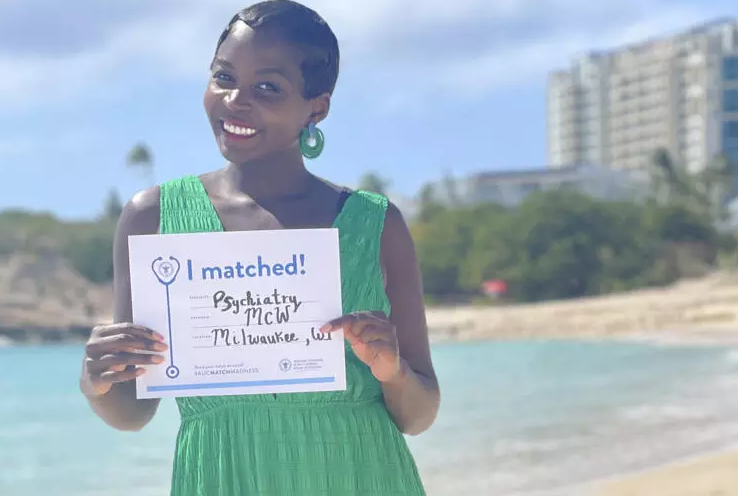
American University of the Caribbean
The Perfect Match for Psychiatry
With Black clinicians representing only 2% of practicing psychiatrists, Dr. Brittany Thompson is setting a precedent.
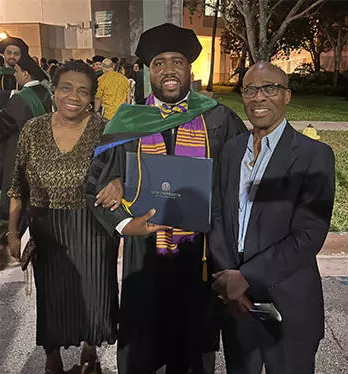
Ross University School of Medicine
Finding His Community and Calling
Dr. Muller Pierre-Louis, who started in the Medical Education Readiness Program, shattered doubts with a surgical residency.
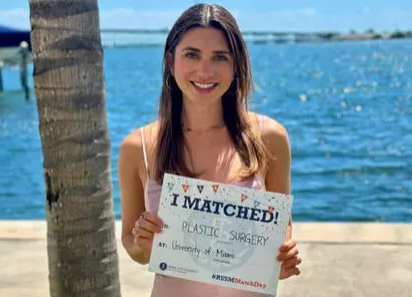
Ross University School of Medicine
Securing a Rare Opportunity in Plastic Surgery
Dr. Emily Finkelstein matched into one of the most competitive programs and fields in healthcare.
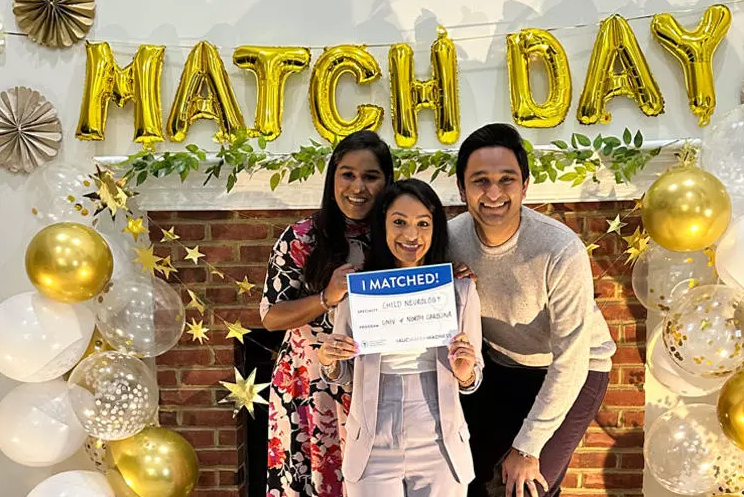
American University of the Caribbean
Fulfilling a Lifelong Purpose
As she starts a residency in child neurology, Dr. Priya Raju remembers what pediatricians did for her and her twin, both born prematurely.
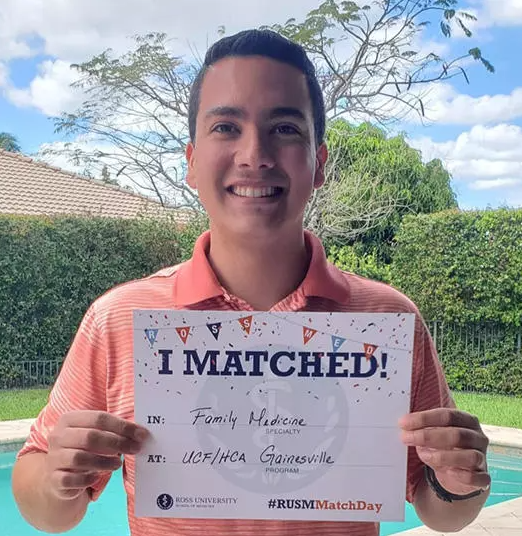
Ross University School of Medicine
A Homecoming
Visiting relatives in the Dominican Republic inspired Dr. Javier Silfa-Cifuentes to pursue his residency in family medicine.
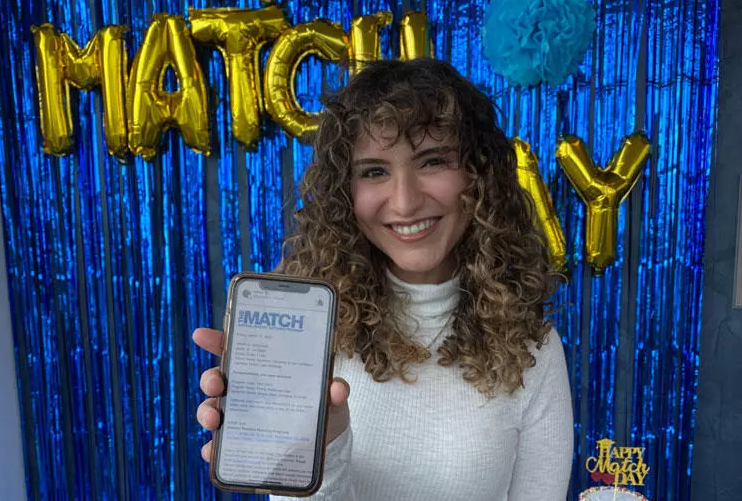
American University of the Caribbean
Where She’s Supposed to Be
Dr. Leen Alrashed matched her first choice, the Urban Family Medicine Residency Program at Wayne State University, not far from where she grew up in Canada.
Additional Reading



